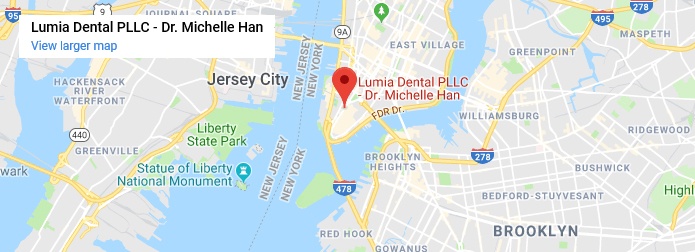
Life can be stressful. Am I right?
Our muscles tense up when we’re stressed. We sometimes clench our fists. More often, we clench our shoulder, neck, and jaw muscles. When our jaw and neck muscles tighten, our teeth clench together. This is one of the most common physical problems that we humans suffer from in the face of stress: tightening our jaw muscles and in turn, clenching or grinding our teeth. Dentists call it “bruxism”
Bruxism can result in tooth sensitivity, tooth wear, tooth fracture, abfraction (chipping of root enamel of teeth), and formation of tori (bony protrusions around the jawbone). It can also extend the problem to the head and neck areas: it can trigger headaches, migraines, jaw, shoulder, upper back, and neck muscle pain, and irreversible jaw clicking/locking. The pain can even radiate to the arms and the lower back. The body is connected, after all.
Excessive bruxism can age our face. When teeth wear down, the bite between our upper and lower teeth becomes closer, making our face look wider and making our nose move closer to our chin. The excess jaw muscle activity can also make the jaw look more square or enlarged.
Nightguards
Bruxism is very common – whether you brux during the day (e.g. while you’re working or driving) or during sleep. Wearing an oral appliance can protect your teeth, the jaw joint (temporomandibular joint, or TMJ), and the jaw muscles, and reduce the stress applied on the neck and back muscles. The oral appliance, whether thin or thicker, soft or hard, can be fabricated by your providers at Lumia Dental.
Botox ®
What is Botox® ?
Botox® is an injectable prescription medication derived from a protein made by Clostridium botulinum bacteria, which is naturally found in soil. Therapeutic doses of a laboratory-purified OnabolutlinumtoxinA (Botox®) can be injected into targeted muscle groups to reduce overactivity and produce temporary muscle relief.
What is Botox® used for?
Most people are familiar with Botox® as a cosmetic product. By diminishing muscle activity, it reduces the appearance of dynamic facial wrinkles and fine lines. However, Botox® has many therapeutic uses as well! It can be used to treat overactive bladders, chronic migraines, eyelid spasms (blepharospasm), cervical dystonia, lazy eye (strabismus), and excessive sweating (hyperhidrosis). Dentists now use Botox® to treat bruxism. Bruxism can be extremely painful and often result in muscle tenderness or tightness, limited ability (or inability) to open and/or close the jaw, ear pain, migraines, headaches, and referred back and neck pain. By treating overactive chewing muscles with Botox®, we decrease muscle activity and its effects on related structures.
Am I a candidate?
Call our office to set up a consultation to see if you are a candidate for Botox® therapy. If you suffer from grinding/clenching, head and neck muscle pain, and headaches, your dentist has probably recommended that you wear a nightguard. At Lumia Dental, we strongly encourage the use of nightguards to protect your teeth from wear and attrition, but we understand that they do not necessarily stop the grinding or clenching. If this sounds like you, Botox® therapy may be the right treatment for you.
Is Botox® safe? How long does it last?
When administered by trained clinicians with extensive knowledge of head and neck anatomy, it is extremely safe. The effects of Botox® are temporary and last around 3-6 months. For reference, according to the Academy of Facial Esthetics (AAFE) the estimated lethal dose of Botox® is around 2500-3000 units -- we only administer 20-150 units in our office. We only use FDA approved name brands in our office, namely the Botox® brand. Side effects and complications can include but are not limited to bruising, pain and swelling at the injection site, flu-like symptoms, headache, nausea, redness, temporary drooping or facial weakness. These side effects can be mitigated by paying extra attention to the pre- and post-treatment instructions we give to you at your consultation.
.png?width=200&name=lumia-dental-logo-text-500(1).png)


